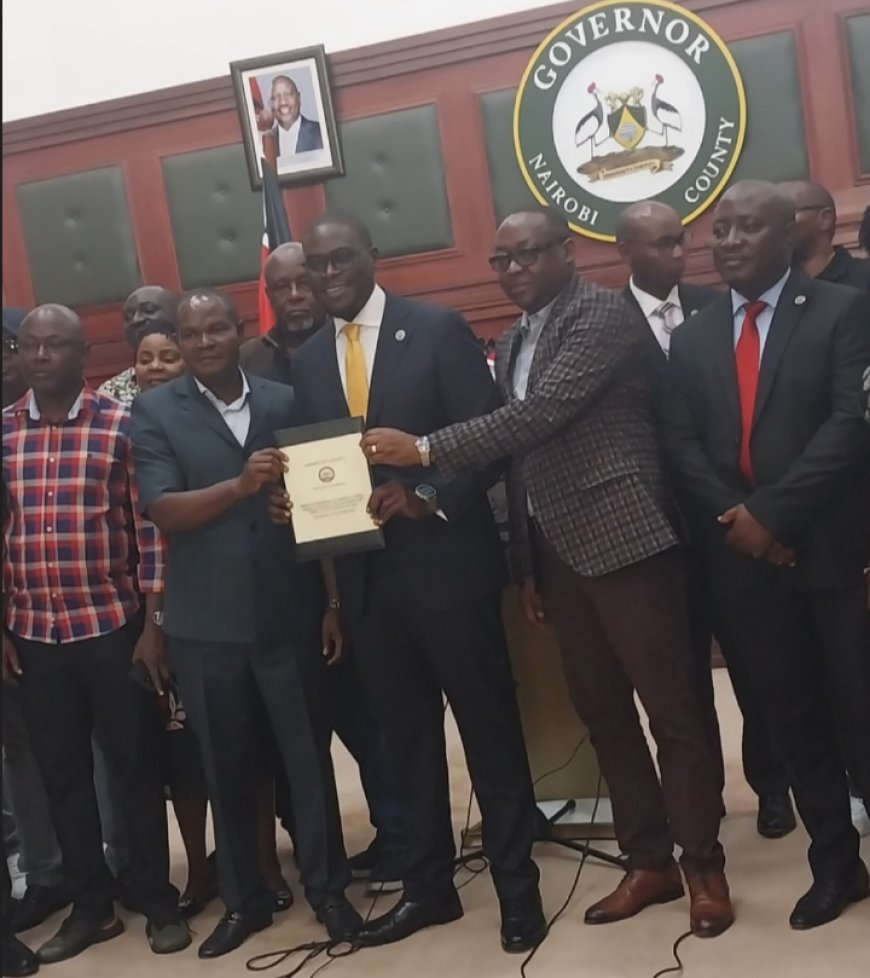Sakaja focuses on improving Financial Management in Nairobi

Nairobi,
Saturday, October 14, 2023
KNA by Nice Wambui /Carol Mawia/ Hamdi Buthul
The Nairobi City County Assembly has unanimously passed the Finance Bill 2023/2024, marking a major milestone in the financial governance of the capital.
Nairobi Governor Johnson Sakaja provided detailed insights into the newly enacted legislation, emphasizing its comprehensiveness and its focus on improving the financial landscape of the city.
Governor Sakaja said that the Finance Act 2023 is a groundbreaking piece of legislation for Nairobi, given the absence of a comprehensive finance act for several years.
He noted that the new act was designed to establish a clear and predictable financial plan for the city.
“Today, I'm pleased to announce my consent to the Nairobi County Finance Act 2023. While there have been similar acts in recent years, this is the most comprehensive we've seen in the last five years,” Governor Sakaja declared.
The governor highlighted some of the key provisions of the Act, stating, “in the initial proposal, market store and service levies were slated to increase by 30 percent, however, following public participation, these charges were revised to a more modest 10 percent increment to account for inflation.”
Sakaja mentioned that the Act incorporated public feedback, leading to the adoption of fee increases aimed at curbing the proliferation of drinking outlets and addressing concerns about young people's well-being.
In the realm of public transportation, particularly the matatu sector, Governor Sakaja noted that charges were retained in some areas while reduced in others to foster compliance with the new regulations. Additionally, advertising fee charges saw a modest increase.
The Act also tackled the crucial revenue source of physical planning, land, and housing. Although an initial proposal sought a 25 percent rent increase, it was subsequently reduced to 10 percent following consultations with stakeholders.
Governor Sakaja made adjustments in public health services charges, with some fees being reduced and others maintained to better align with public sentiment regarding reproductive health.
Parking regulations underwent significant changes, with the introduction of well-defined parking zones. The city is set to adopt new technologies to ensure residents receive value for their money.
On education, Sakaja said, “In the provision of basic education and training schools, we have revised a supplementary plan to construct 5,000 new classrooms in Nairobi over the next three years, with 500 to be built this year in each of the 38 wards.”
For the first time, citizens will be allowed to pay in monthly installments, spanning ten months, with the first two months allocated for enforcement purposes.
Governor Sakaja emphasized the Act's provision for a unified single business summit, which aims to simplify the licensing process for businesses in Nairobi.
He explained, "Only one certificate will be displayed on the wall with a QR code, and inspection teams will easily verify if all business-related dues have been paid."
Governor Sakaja assured Nairobians that every shilling spent under this new financial plan would be dedicated to the welfare and benefit of the citizens, marking a promising step forward for the city's economic and financial landscape.
Courtesy; KNA
What's Your Reaction?



































































































































































































































































































